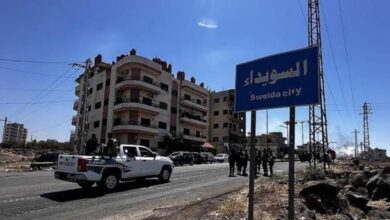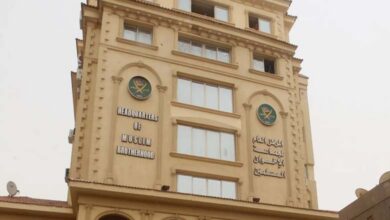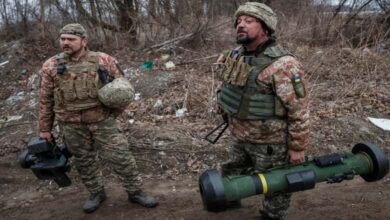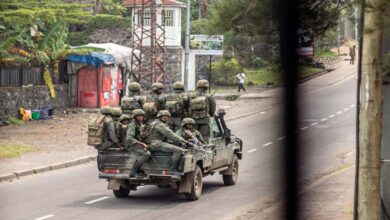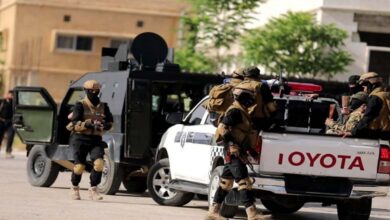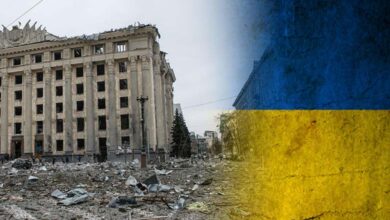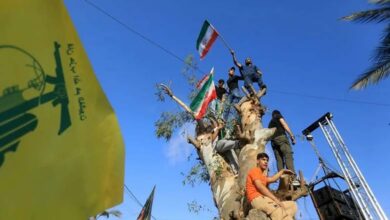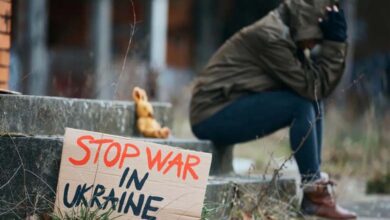A Year into Sudan’s War… Suffering Without End
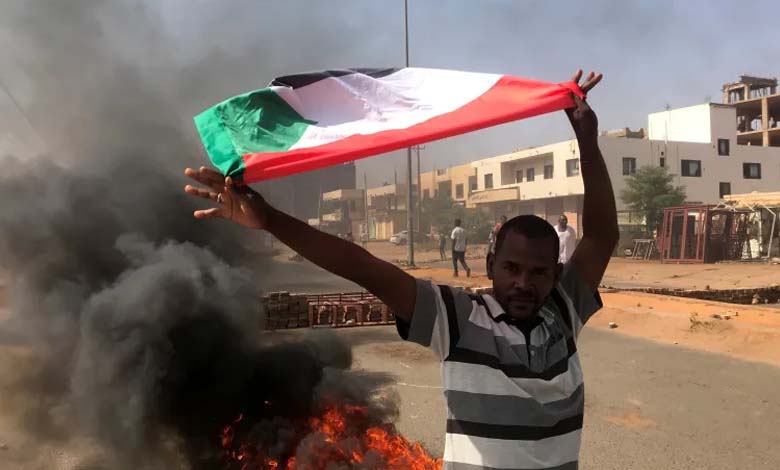
After nearly a year of war, Sudan remains engulfed in a sea of violence and conflict, with humanitarian, food, and economic crises worsening.
Efforts by the international community have not led to tangible results in the ongoing war in Sudan since April 15, between the army led by Abdul Fattah al-Burhan and the Rapid Support Forces led by Mohamed Hamdan Dagalo “Hemetti”.
The United Nations states that Sudan, already one of the world’s poorest countries before the war, is witnessing “one of the worst displacement crises in the world, and is on the brink of soon experiencing the worst famine crisis in the world”.
These clashes, now covering vast areas of the country, have led to the deaths of thousands, including 10,000 to 15,000 in a single city in the Darfur region in the west, according to the United Nations.
6.5 million Sudanese have been forced to flee their homes, while another two and a half million have sought refuge in neighboring countries.
18 million Sudanese, out of a total population of 48 million, are suffering from severe food shortages. Hundreds of thousands of women and children are now at risk of starvation, in crises where humanitarian workers feel helpless due to refusal of entry visas, imposition of high customs duties on food items, in addition to looting of warehouses and difficulty in accessing those stranded near the frontlines.
The healthcare system has collapsed almost completely in Sudan. Khartoum estimates losses in this sector at around $11 billion.
The agricultural sector, which employed the majority of Sudanese in a country once considered the breadbasket of Africa, has now turned into scorched earth. Even the few factories have been bombed.
The government claims to have lost 80% of its resources. Continued fighting could lead to a halt in exports of South Sudanese oil, which brings in tens of millions of dollars in revenue to the Khartoum government each month.
The population now has only “resistance committees,” groups that were organizing democracy protests a few years ago and now manage small treatment centers and public kitchens in neighborhoods founded by volunteers and funded by donations from Sudanese abroad.
“Victory” Unattainable
According to Sudanese expert Alex de Waal, “there is no indication that we are heading towards the end of the war.” He adds that even if it were to cease, “the path to rebuilding a shattered state will be long and difficult.”
He emphasizes that “the map of control on the ground has not changed much throughout the war. And the occasional data released by both sides to claim advances convinces no one.”
Journalist Mohamed Latif confirms to Agence France-Presse that “achieving any victory at this stage is impossible, as their forces are weak and exhausted due to the difficulty of obtaining supplies.”
On the ground, the Rapid Support Forces hold the ground, especially in Khartoum and the Darfur region, where they gained a foothold at the beginning of the century.
The army controls the skies, being the only one with warplanes. Its aircraft bomb the Rapid Support Forces, but without ground control, making “any victory impossible,” according to a former officer who requested anonymity.
In the urban warfare, where both sides use weapons accumulated over the years, it is the civilians who pay the price.
It’s not in anyone’s interest
The momentum of mediation efforts led by regional bodies such as the African Union or IGAD (organization comprising East African countries) or the Arab League to reach a negotiated solution to the conflict has waned.
However, the United States has pledged to resume its efforts with Saudi Arabia, announcing that a new round of negotiations would take place in Jeddah on April 18.
Despite the setbacks in mediations, De Waal argues that it “is not difficult to find a consensus in Africa and the Middle East that the collapse of Sudan is not in anyone’s interest”.
He explains that the fall of Sudan, “a hotspot for cross-border conflicts and international rivalries (for influence), could ignite the entire region”.
Sudanese political commentator Khaled El Tigani believes that “this war and its political ramifications make it difficult to predict the future. It’s not just a matter of conflict between the two generals, but there are many foreign interventions”.
Despite repeated warnings from the international community and the United Nations about the potential for worsening humanitarian crisis in the coming weeks and months, both al-Burhan and Hemeti are sticking to their positions. Each side labels the other as “terrorist”.


